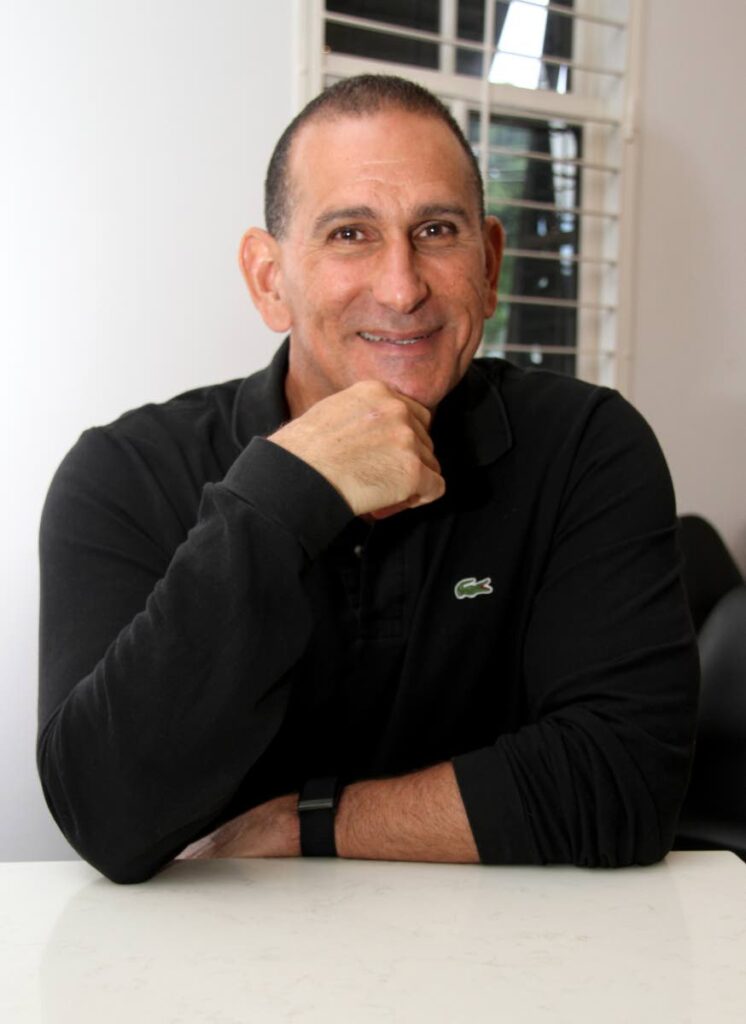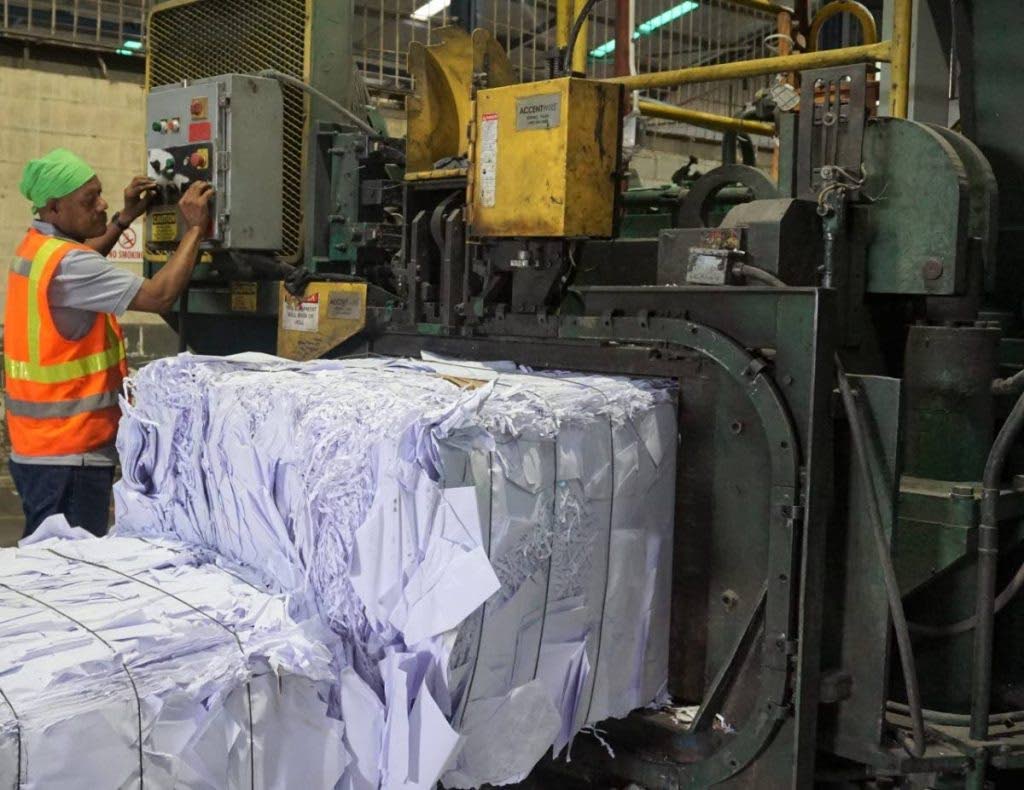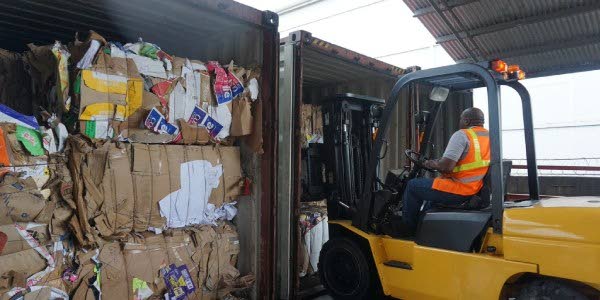Hadco makes US$ from 6,000 tonnes of waste

John Hadad, co-CEO of Hadco Group, said his company managed to prevent 6,000 tonnes of garbage from going into the dump and converted it to US dollars last year. Speaking on a panel at the American Chamber of Commerce’s (Amcham) Environmental, Social and Governance (ESG) conference, he said while the venture isn’t quite profitable now, it soon will be.
He said when management took a deeper look into the company, they realised that if their business model didn’t change, it would not go beyond five years.
Hadad said, “When we started looking at things back then, there was no ESG, we just asked what is sustainable? What are the ills in our society? We’re a TT-based company, we are locals, we have one passport and all of us are at the ownership level.”
The Hadco Group formed a recycling division in 2017 with the acquisition of Eco Impact Co Ltd, and now collects, processes and recycles waste vegetable oil, exporting it to be reused in the production of alternative fuel. In 2020, Hadco also formed New Age Recycling Ltd to recycle wastepaper, cardboard, Tetrapak – cartons and milk/juice boxes – and aluminium cans.
Hadad was responding to a question put to the panel on government’s role in making sure there was alignment when it comes to achieving ESG goals.
The conference aimed to give companies information they need to help them make the leap and invest in ESG policies The conference was the first of its kind held by Amcham.
Hadad was joined by Mark Loquan, president of the National Gas Co of TT Ltd, Gregory Hill, managing director of Ansa Merchant Bank Ltd, and Bill Shireman, president and CEO of Future 500. Future 500 is a US-based non-profit consultancy firm that gets companies and their stakeholders to work together to make the environment and society thrive.
Hadad said, “The fact is, turning waste into US currency is an easy thing to do. Maybe the operational side of it might be difficult, but it’s an easy thing to do without regulation.
"However, the low-hanging fruit for us as a country is to enact some form of legislation that can facilitate this.”
Hadad explained that with legislation, this new avenue of foreign income would be separated from domestic, commercial and industrial businesses. He said this would also force a sort of compliance through regulation among all these industries.
“It would make life easier for us, and I assure you, will then be very profitable, and it will help us in some way.”
Hadad added that the government involvement in ESG investment is needed.
He said government is part of the ecosystem for investments and policies like these, as the government allows processes to flow more easily.
Shireman, who was heavily involved in promoting legislation in California, agreed with Hadad and said he did not see the need for government to be overly involved in decisions like these. But government is best suited for creating the framework and boundaries when it comes to these incentives to ensure fair play among companies.
Shireman recalled his experience in California, "one of my first successful forays in bringing both (government and companies) together around the wastage many years ago...We wanted recycling to happen in California. We battled. I was the head of the environmental lobby and we were battling all over the beverage companies and eventually, we got tired of just battling each other, sat down at a table and asked, ‘Well, how do we work this out?’”

He said from that decision, his team and the beverage industry were able to create the “simplest, easiest, lowest-cost system” for incentives and deposits on beverage containers. Shireman said because government was not heavily involved, there was minimal imposition of the rules, but maximum ability for those in a position to make money from recycling.
“The consequences of that is that we have recycled in California more than a trillion containers since then. Otherwise it would have been in the ocean, the landfills or the streets.
"And it happened because instead of battling each other, the stakeholders, environmentalists, labour groups, companies, packaging companies, all sat down and designed a system ourselves. It worked and almost everybody associated with it has thrived since.”
Shireman said government can always come in with a hammer if if it wants, but so far, the system in place has been successful for all involved.
The California Bottle Law was enacted in 1987, but in 2017 it was described as being in a state of crisis before Shireman advocated the passage of the bill. This legislation brought together a coalition made up of Coors Brewing Company, Safeway, an Idaho-based company and Sierra Way, an environmental and social justice non-profit organisation.
Loquan added that government needs to look at bigger areas to ensure ESG implementation is successful.
“The best thing that we can focus on is the use of molecules and power and the efficiency, use and behaviours that come along with that.”

Loquan referred to Planning and Development Minister Pennelope Beckles’ address at the conference, when she said TT is committed to reducing emissions from power-generation, industry and transport by 15 per cent, or 103 million tonnes of carbon dioxide, by 2030.
He said the short-term solutions would be to get people to use less energy and to expand efforts in renewable energy like that of bpTT and Shell.
“You’ll see us talking about capturing the carbon dioxide coming from the ammonia industries, but in a pipeline, and, hopefully, sequestering (removing) and storing it in upstream reservoirs. That means collaboration is required.”
Loquan said the NGC had met with officials of Denbury to work with them on this carbon-sequestration goal. Denbury is a US-based carbon solutions company that has been in business for over 20 years. It also owns and runs a large carbon-dioxide pipeline network and has experience in managing the safe transportation, injection and monitoring of carbon dioxide.
He added that he supports the mandatory measurement of greenhouse-gas emissions as that will help reduce the millions of tonnes in the atmosphere. Greenhouse gases – carbon dioxide, methane, nitrous oxide and water vapour – trap the sun's heat and raise global temperatures, causing problems such as flooding, more devastating hurricanes, migration of species and impact on agriculture and livestock, among other issues.


Comments
"Hadco makes US$ from 6,000 tonnes of waste"